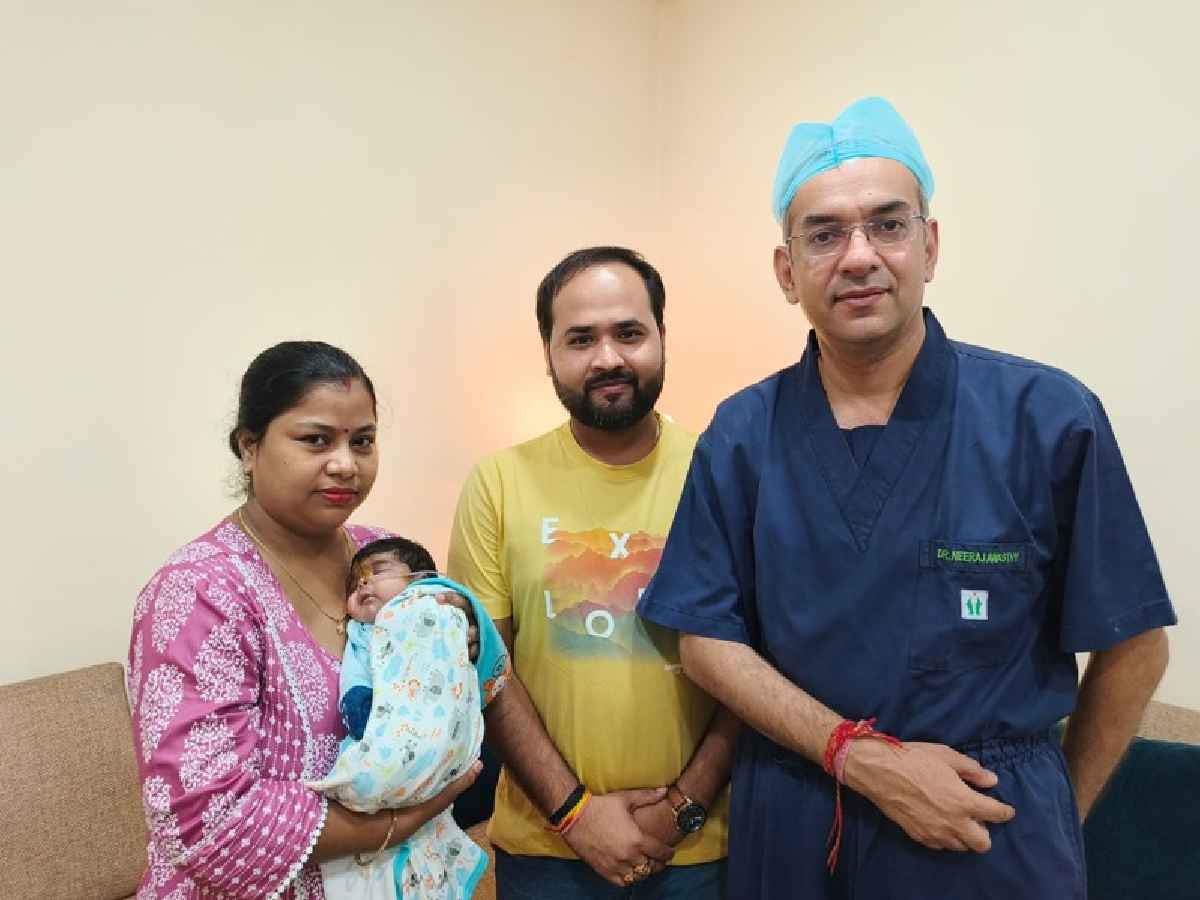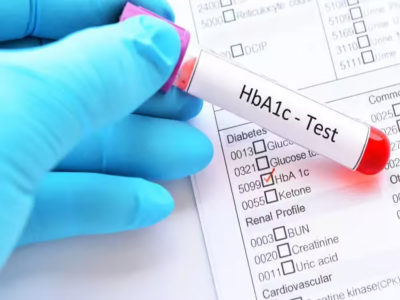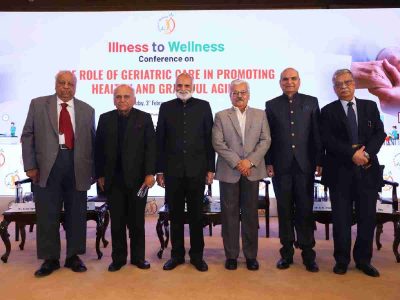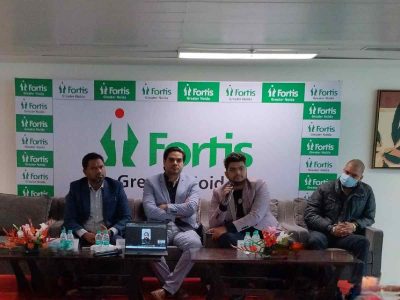A one-day-old new-born suffering from transposition of the great arteries, a rare, life-threatening heart defect, was successfully treated after doctors performed a complex heart surgery at Fortis Hospital, Okhla, in Delhi.
Transposition of the Great Arteries, a rare, life-threatening heart defect, occurs when the main arteries originating from the heart are switched, along with a hole in the heart. According to a doctor privy to the development, the team of doctors conducted a high-risk Arterial Switch Operation (a rare open-heart surgery that corrects a defect in which the aorta and pulmonary arteries are in the wrong ventricles of the heart), thus saving the new-born’s life.
Also read: Is ASI’s night tourism drive finding enough takers?
“The procedure lasted for three hours, and the new-born was discharged after 16 days in a stable condition,” they informed.
During a routine ultrasound scan at the 20th week of pregnancy, cardiac anomalies were suspected in the foetus. A foetal echocardiogram revealed that the baby had severe congenital heart disease. The doctors said that following the diagnosis, Dr Neeraj Awasthy, Director of Paediatric Cardiology at Fortis Escorts Heart Institute, Okhla, recommended that the baby be delivered at Fortis La Femme under the medical supervision of Dr Meenakshi Ahuja, Senior Director of Obstetrics & Gynaecology, where a caesarean procedure was performed.
“Post-delivery, the mother and baby were transferred to Fortis Escorts Heart Institute, Okhla, for further evaluation,” they said.
The following day, Awasthy performed a Balloon Atrial Septostomy on the new-born. Doctors explained that the minimally invasive heart procedure is used to treat specific congenital heart defects in infants. During the procedure, a catheter with a deflated balloon at its tip is inserted into a blood vessel and directed towards the heart. The balloon is then inflated to create or enlarge a hole between the heart’s two upper chambers. Afterward, the balloon is deflated and removed. This intervention played a crucial role in improving the baby’s oxygen levels and stabilising her condition.
Once the baby’s condition stabilised, Dr Awasthy and Dr KS Iyer performed a high-risk Arterial Switch Operation, which reconnects the two arteries to their normal positions using bypass surgery. Following the successful surgeries, the baby was stabilised and is now recovering with fully healed incisions.
Also read: Delhi polls: Congress releases manifesto, promises to conduct caste census
Awasthy provided more details on the case. He mentioned that the situation was particularly challenging due to the baby’s underweight condition and the complexity of the heart defects. At birth, the baby weighed only 1.8 kg and was placed on gavage feeding to help increase weight and ensure proper nutrition. This feeding method helped her reach 2.3 kg. He stressed the importance of the timely diagnosis made via foetal echocardiograms, which identified congenital heart diseases before birth and helped in preparing for the treatment. He also highlighted the collective effort of the entire team in ensuring the best outcome for the baby and expressed satisfaction at the baby’s recovery.
Iyer, Chairman of Paediatric & Congenital Heart Surgery at Fortis Escorts, Okhla, said the Arterial Switch Operation is a highly intricate procedure, particularly in newborns with multiple heart defects. He noted the procedure’s high risk due to the baby’s prematurity and underdeveloped heart. Despite the risks, the surgery was successful, and the baby’s recovery has been remarkable. He added that if the treatment had been delayed, the baby would not have survived due to the severe complications caused by Transposition of the Great Arteries, which would have prevented the body from receiving sufficient oxygen, leading to organ failure and death.
Dr Vikram Aggarwal, Facility Director of Fortis Escorts, Okhla, acknowledged the challenges posed by the new-born’s age and critical condition. He emphasised that the baby survived due to correct medical assessment and successful procedures. He also highlighted the role of clinical expertise and advanced technology in paediatric cardiology at Fortis Escorts Heart Institute, which continuously strives to provide the highest level of care to save lives and ensure better outcomes.





